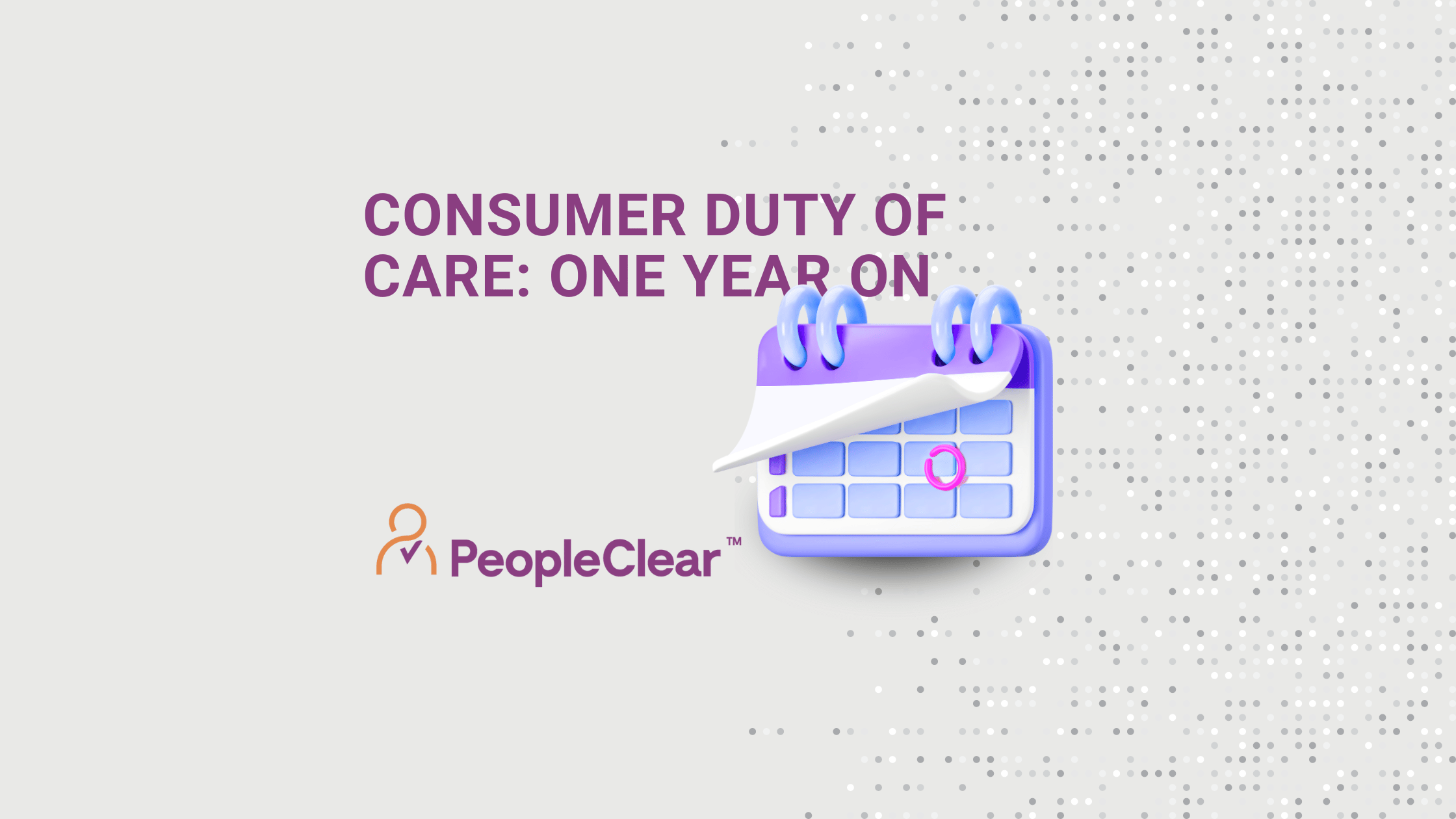Consumer Duty of Care – One Year On

The Consumer Duty of Care was brought in by the Financial Conduct Authority (FCA) in July 2023, setting out higher and clearer standards of protection for consumers in financial services. Firms should be putting consumers’ needs first and, if they do not, Senior Managers could find themselves accountable. Now one year on from its implementation, what impact has the Consumer Duty had?
What is the Consumer Duty of Care?
The Consumer Duty of Care was brought in by the FCA to set out a requirement for firms to deliver good outcomes for customers. This expectation has always been there but the Consumer Duty clearly sets out a higher standard to ensure firms understand what is expected of them and allows for more monitoring and intervention, assessing compliance against 4 outcomes:
- Products and Services
- Price and Value
- Consumer understanding
- Consumer Support
These higher standards ensure firms:
- Act in good faith
- Avoid causing foreseeable harm
- Enable and support retail customers to pursue their financial objectives
The Consumer Duty initially applied to new and existing products but as of 31st July 2024 this has been extended to apply to closed products and services too.
Why was the Consumer Duty of care brought in?
Brought in to ensure firms are acting in the best interest of their customers, Consumer Duty required firms to review where they are already achieving compliance and where work was needed to improve. For some firms the Consumer Duty would have required a real cultural shift within the organisation. The FCA recognised that this would take time but there was an expectation that a strategy would be put in place to work towards meeting the requirements. It also demonstrated to firms that regulation shouldn’t solely be the concern of compliance teams but something that was considered holistically throughout the organisation.
All firms are accountable for this, and responsibilities should to be set out within the organisation. This naturally leads on from the Senior Managers and Certification Regime (SMCR) which aims to reduce harm to consumers and strengthen market integrity. Responsible Senior Managers and/or Certified Persons should have ensured the consistent interpretation and implementation of Consumer Duty policy and processes across the various business areas.
Where are we now?
Firms have now had over a year to embed the Consumer Duty in their organisation and through their processes. But that’s not to say it is “done and dusted”! Like most regulatory processes, the Consumer Duty will need to be regularly reviewed to ensure firms remain compliant.
Bringing in the Consumer Duty of Care has allowed the FCA to respond and act more quickly to areas of concern within financial firms. For instance, in the last year the FCA has raised concerns about the value of some general insurance products. Whilst even without the Consumer Duty these may have come to light, the focus on positive outcomes has enabled quicker review of these products and brought the concerns to light sooner.
Bringing in a focus on positive customer outcomes was intended to bring a cultural shift to the financial services sector. Cultural change takes time so it may be a while before we see the true impact of Consumer Duty but there are already some early indications of positive change. The regulation has seen firms over the last year reviewing their processes and beginning to implement better practises with a stronger focus on the consumer.
The FCA are now calling for input into a review of FCA requirements following the introduction of the Consumer Duty to gather views on where and how they can refine their retail conduct rules whilst ensuring protection and support to consumer.
You can read more about the Consumer Duty in our blog post “What is the Consumer Duty of Care?” or for support in managing your compliance get in touch now to find out how we can help.